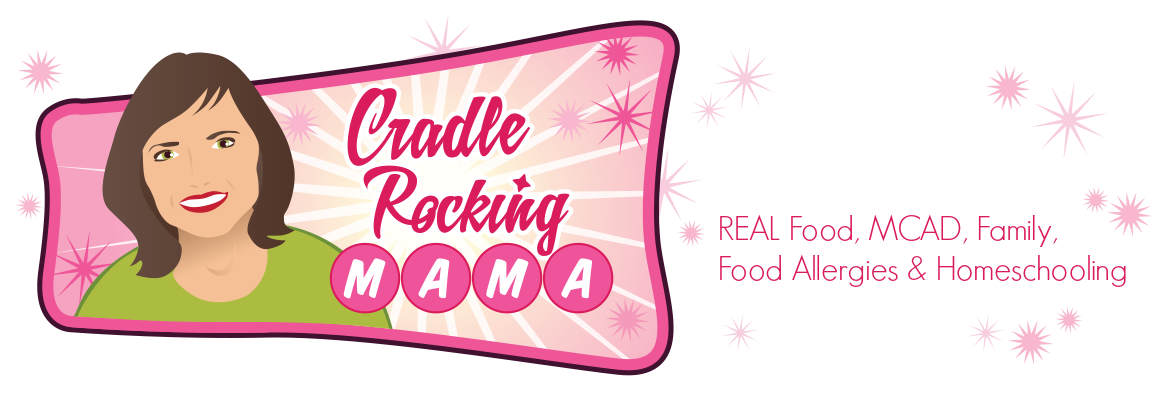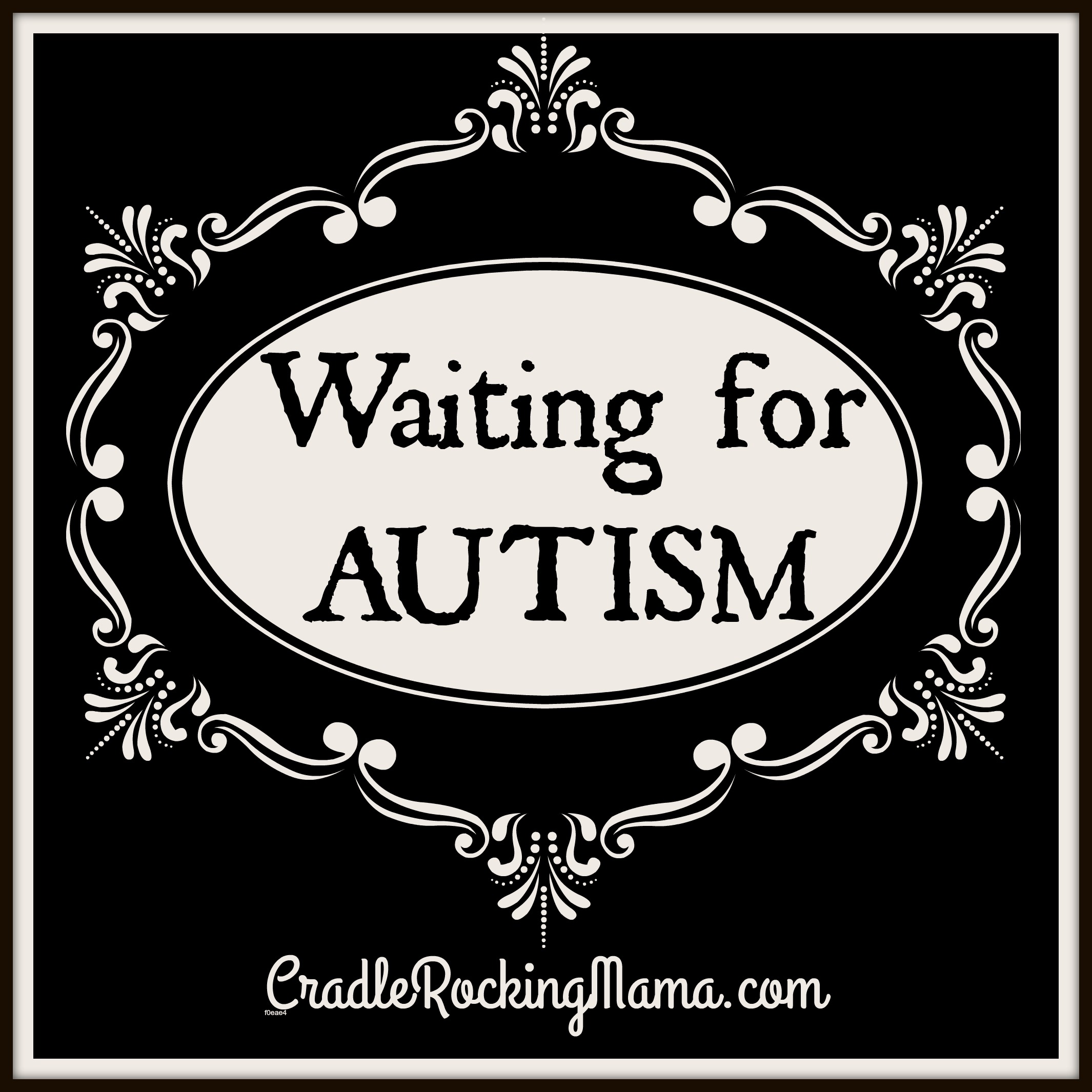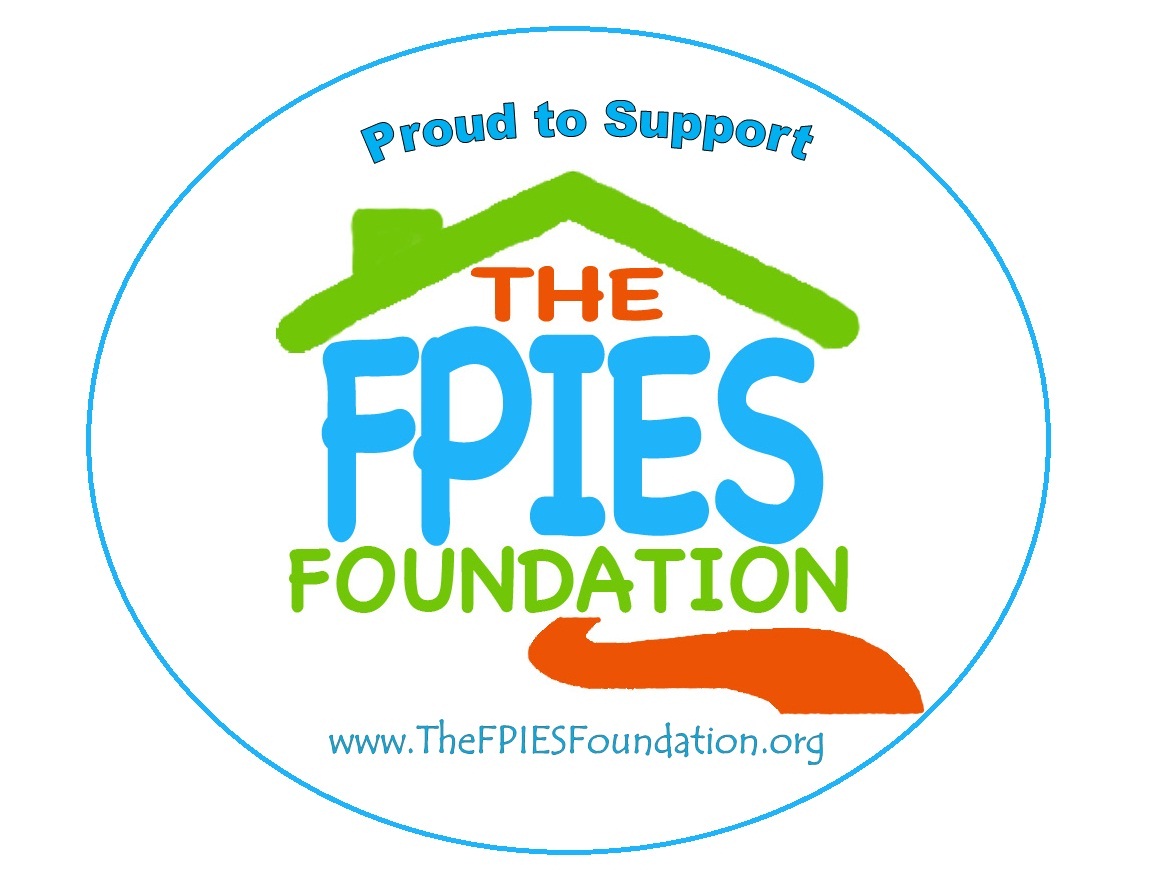This post has taken over two weeks to write. It started as a place for me to just “brain dump” my feelings about Jed’s SPD evaluation, but then I tried to work those brain dump thoughts into a post to share.
I succeeded, somewhat, but it was still a grammar and writing nightmare. Plus, the subject matter…I just couldn’t bring myself to edit it any more OR post it.
Some new developments have come to light, however, and when trying to put those thoughts to paper (so to speak) I discovered I simply couldn’t without sharing the thoughts I’d already written so poorly in this post. Therefore, I’m sharing it at the same time as the update post, so the whole story comes out in a way that is more true to life and real than it would have been if I’d been compelled to re-write everything from scratch.
Y’all, this has been a really, really, really, REALLY emotionally and mentally challenging three weeks for me. My head feels like it is going to explode.
Honestly? It’s on par with the summer we discovered FPIES for Zac.
Before you go any further, I want to thank you for being here through our whole journey. It matters to me.
For reasons I didn’t even understand until recently.
I’m writing this post somewhat prematurely; as of now, Jed has NOT been diagnosed as autistic.
However, at our psychiatric evaluation three weeks ago, the very nice shrink made it clear that much of what he saw and heard had him considering autism as Jed’s diagnosis. (Now you may understand why the stress of Tuesday may have triggered a mast cell reaction in me.)
It started out simple enough. I was only there to get the shrinks SPD agreement, after all. The OT has already said Jed does have SPD, as I suspected, and was ready to begin therapy with him two months ago. Since we can’t afford the therapy and need TEFRA coverage to get Jed the SPD help he needs, it’s necessary to have that diagnosis confirmed by a doctor.
That’s the entire reason I was there with the boys. Confirmation of SPD.
I was busily stating my “Jed has SPD” case, fortified by my understanding that *I* probably have/had SPD, too.
I’m not sure if I’ve covered that before, but from the minute I started using online checklists to decide if it was worth having Jed evaluated for SPD, I noticed how frequently I answered ‘yes’ to the same questions. Over time, as I did more reading, I realized that I truly suffered from SPD as a kid.
I learned coping mechanisms as I grew up, and desensitized myself along the way so that now, I feel I am far more functional than I was as a kid. But I’m here to tell you, it was hard.
REALLY hard. Hellish, even.
Since I don’t want Jed to go through that hell, I was bound and determined the shrink would see SPD and mark his little forms and give me the ammunition I needed to convince TEFRA that Jed needs help. Because he does. And one way or another, Mama is gonna get her baby cub that help.
So I’m rattling off all the reasons why Jed and I have SPD (there’s a common genetic link for SPD, I’ve read, which is why I was trying so hard to make the case that I had it, too…genetic link=higher odds the good doctor will mark his forms, right?) and the nice man is listening to me, taking notes, and watching Jed wander the room, interrupt us frequently, start the early stages of a meltdown about wanting to take off his shoes (that I avert by saying he may take off his shoes but must keep his socks on), ask questions about everything, refuse to make eye contact with the man, climb, and wander wander wander…all those traits of Jed’s that I’ve noticed or not noticed consciously but have accepted in stride as “just normal Jed”.
Not that I just let him get away with all of it! I know interrupting is rude, and every time he does it I tell him “Sweetheart, it’s rude to interrupt. Next time you want to tell me something, say ‘Excuse me, Mommy’ and wait until I turn to speak with you”.
Know what that’s gotten me after years of constant repetition? Now he interrupts by saying “Excuse me, Mommy. Excuse me, Mommy. Excuse me, Mommy.” repeatedly until I stop talking and acknowledge him. And when I once again remind him to wait until I can speak with him he always says “I’m sorry but…” And he only says “I’m sorry” because I’ve repeatedly made him apologize every time he has interrupted me for the last three years.
And the shoe thing? The child loathes having any clothing on his body at all. Shoes especially. Ever since he was old enough to remove his shoes by himself he has done so at the first opportunity. If we are in a store and simply stop walking for a few minutes I can often find him trying to take off his shoes. My admonishments that “Baby, we don’t take off our shoes in public” succeed when we are places where we will begin walking again shortly, but any place where we will be confined for a while (doctors offices, mostly) prove to be a meltdown moment if I refuse to let him take off his shoes.
I’m just happy I finally got him to understand that we don’t take off our pants and underwear in public. I’ll let him take off his shoes at a doctors office in exchange.
And the wandering? I just thought that was typical, curious 5 year old boy.
The eye contact? Can I just tell you how much we have worked on that over the years? Every day. Multiple times a day. Because, normally, I could care less if he’s looking me in the eye, but I’ve noticed that if I have something important to tell him, he often DOES NOT HEAR a single word of a sentence spoken directly to him from two feet away unless I’ve been able to get his attention turned to me. And when I ask him to look at me, he will look in my general direction. So I actually take his chin in my hands, aim his face to look right at mine, and sometimes even use the two finger “point at my eyes point at his” back and forth while saying “Jed, eye contact, buddy”, and STILL he cannot make his eyes meet mine for longer than a second.
Unless he is completely relaxed. Then I can get eye contact from him.
Until I have something important to tell him. Mommy saying something important=stress for Jed=no eye contact.
Mostly I attributed that to stubborn personality. My mom always said I had “selective hearing”, and I’ve often thought Jed was the same. ‘He doesn’t make eye contact’, I thought, ‘because to do so would force him to hear that which he does not want to hear. Stubborn kiddo!’
And climbing? He’s a natural monkey. The kid has been climbing since he learned to walk. He never learned how to break down baby gates or open them. He simply learned how to climb over them.
My dad always laughs and says “like mother, like son”, because I was a natural climber, too. There are pictures of me on top of the refrigerator at about 2-3 years old. I have similar photos of Jed at that age as well.
So climbing never worried me. That’s normal, right?
And I’m going through all my Reasons Why Jed Has SPD while Jed is behaving in this manner and the doctor is taking notes and we get to the part where he starts asking me questions.
And for many of those questions, sometimes whole sections of questions, I never stop nodding my head “yes” the whole time he is speaking.
“Yes, Jed does that. Yes, he does that. Yes, it’s impossible for him to do that.”
No doubts. No maybes. No sometimes. ALL the time.
And the kind doctor gently shared with me that in some of these sections the questions were relevant to ADHD, or OCD, or SPD, or autism.
And I started to feel nervous.
Then Zac had a potty training accident and I raced him off to the bathroom to get cleaned up, leaving Jed alone with the doctor for just a few minutes. When we came back, the doctor had called his receptionist in to escort the boys to the playroom for the rest of the session so we could talk undisturbed.
After they left, we began a new question session. This one wasn’t so cut and dried. Many more “sometimes, maybes, and on occasions” in these answers.
And then the doctor commented on the manner in which Jed spoke to him while I was occupied with Zac. At first I was pleased; my charming son IS as well-spoken and intelligent as I thought! His vocabulary IS as advanced as I thought it was! His ability to communicate clearly with adults IS as good as I perceived!
Then the good doctor crushed my enthusiasm by saying “That’s not typical for children his age; that’s more common with autistic children.”
He went on to say that such precision in speech (because it wasn’t just the heightened vocabulary, it was the specificity of word choice that Jed used that piqued the doctors notice) was not common for most people regardless of age, but especially in younger children. Then he noted “You do that, too, mom.”
I sort of looked at him like he’d grown a third head; why wouldn’t one be purposeful in word choice? Words have meaning; to use an incorrect word out of laziness is just…wrong. How can you convey your thoughts if you use the wrong words? People won’t understand exactly what you meant.
And I told him that. Exactly like that. I even said lack of precision in thoughts was a pet peeve of mine.
And he smiled a little and nodded. Then he moved on.
He pointed out the behaviors he had seen in Jed (the ones I listed earlier, including one I didn’t mention: that he had instructed Jed where to sit and Jed sat there for all of 5 seconds before getting up and beginning his wanderings), behaviors I hardly even notice any more and certainly didn’t think were all too terribly unusual beyond “normal 5 year old, must work off the rough edges and teach him a little better”, and explained how all of those behaviors are common characteristics of autism.
And I felt the floor shift beneath my feet a little.
Then he moved on to ask more questions, and I was stunned to hear not only the questions but mostly my honest answers to them.
No, Jed never really engaged in imaginative play…until Zac started doing it and taught him how to. No, Jed doesn’t really interact best with kids his own age. He always gravitates towards kids older or younger than him at the park. Yes, he does fixate on things, though I can sometimes redirect him. Yes, he makes noise constantly. Yes, he is very literal. Humor is a little hard for him to understand sometimes. Yes, he does often laugh inappropriately at things and situations.
And when he was asking about being literal, I paused before answering, and the doctor said “For example, if you say to him ‘You’re a cute little pumpkin!’ Would he say ‘I’m not a pumpkin!’?”
And my jaw hit the floor. I actually said “Have you been following us? Because that exact, verbatim exchange HAPPENED about a year and a half ago!”
And the doctor just did that little smile again and said “No; that’s just a very common exchange for autistic kids.”
And when he said that? I felt myself tumble head over heels and spin around in circles and I started to cry.
Autism? No! It can’t be autism! I said to the doctor, Jed – and I, for that matter – are far too social and interested in people to be autistic. Jed’s nickname is Mr. Charm, for crying out loud!
And he said that autism isn’t what most people think it is; he went on to explain about PDD, Aspergers and Autism, and how the new DSM-V calls them Autism I, II, and III.
And then he said that “Autism is about boundaries, and autism is about being outside of the boundaries of what people consider ‘normal’.“
Then, in response to me pointing out that both Jed and I are very sociable people and that we love being around people, so autism just didn’t fit, he pointed out that being sociable doesn’t discount autism; many autistic people are very interested in people.
They just struggle with how to interact with them.
I felt as if my life was a puzzle I didn’t know I was working and only realized when that puzzle piece slapped into place. It fit. Too well. I’ve always struggled with interacting with people. Ask my Mom to tell you stories. Ask me, for that matter. And watching Jed on the playground is sometimes joyful, but sometimes, y’all, it’s downright painful to see him so desperately trying to figure out how to relate to the other kids. He’s just…out of synch somehow, and I could never figure out how to help him “synch up”.
And as I sat there, floored, he went on to talk about the therapies used for autistic kids and cited compression and brushing as two examples of what our OT might recommend for Jed.
Seizing on anything and everything that might disprove autism, I said “But Jed HATES being held tightly; I’ve tried that on him before and it makes him worse!” (Since deciding Jed has SPD, I’ve been reading and learning. I’d already heard about both techniques and tried compression on Jed.)
The doctor responded with some of the different methods in which compression is administered; heavy blankets, holding on to their joints, stretchy material hammocks…and I felt my hopes dashed as I had to admit: “Jed LOVES the hammocks. He keeps asking to go back to the therapy place with the ball pit and the hammocks.”
And the doctor explained brushing to me (which I’d read about but didn’t fully understand), that it is sort of like when you walk into a room with a gas leak and the smell is overwhelming but if you stay there for a while you stop smelling it. You become desensitized to it.
And I laughed and said “Well, I guess I ‘brushed’ myself like crazy my first year as a Flight Attendant!”
And he looked puzzled and asked what I meant and I had to explain that I cried on every single flight I worked my first year as a Flight Attendant. Sometimes I even had to lock myself in the lavatory to vomit or have diarrhea. Sometimes I had to just lock myself in the lavatory to have a few minutes alone to regain composure and bear myself up to face the flight again. And that after a year of experiencing that every single time I set foot on a plane, one day it just…stopped. I felt normal on the plane dealing with all those people and all that stress and change. Well, maybe not normal, but not completely incapable of functioning in the face of it.
And the doctor listened to me, and smiled, and he asked me more questions about Jed.
With each question he asked, I found I could speak less and less. I was too choked up, because now, when I answered honestly, I saw each affirmative or negative answer as another nail driving the autism point home. Eventually I was simply nodding.
And then he asked something that I can’t remember now and I found I had to clarify the answer. I couldn’t tell you what we were discussing, but the doctors response is burned on my brain: “Well, when Jed is in that situation, he’s feeling probably a lot like you did that first year of flying.”
And that, my friends, is when the big, ugly sobs broke out.
Oh, the pain I felt at that moment! My precious little boy is feeling THAT kind of anxiety and fear and stress and “fight or flight” instinct?? NOOOO!!
I wouldn’t wish my first year of flying on anyone. It was hell. It was only my extreme pride, stubbornness, and refusal to fail that kept me in this job back then. (What can I say? I’m stubborn and persistent.) Returning home after less than a year was simply not an option for me, so I forced myself through agony every day. I was miserable and lonely and felt like I was losing my mind.
And he’s sitting here telling me Jed is feeling even a small portion of that at times???
And I’m wanting to not believe him, but suddenly in my minds eye I see flashes of things (because, yes, similar to Temple Grandin I often think in pictures): the expression on Jed’s face sometimes (where most wouldn’t see anything wrong but *I* can see the subtle tightening of his mouth and the fixed look in his eyes that I recognize because I’ve seen my own face on the mirror when I’m feeling that way so I know what’s going on in his head), the memory of the first time Jed said “I love you, too” after I’d told him I love him without prompting (because he never seemed to understand that you’re “supposed to” say that back if you love the person; we had to teach him that), the many times he has told me that he finds his day “easier to do when I know what we are going to do ahead of time”, the fact that we have used timers to help with transitions for almost a year now, the fact that I had to warn Jed that morning and the night before about this doctors appointment because to have not done so would mean he would STILL be melting down, about how literal Jed is that we have to explain jokes to him frequently, how he uses punchlines out of context and YEARS after they were situationally funny trying to recapture that moment of humor that he “got”, that he never ever lies.
And worst, I’m seeing images of Zac, and how he has pretended to be a kitty cat for almost a year now, how he picked up on saying “I love you, too” all on his own, how he lies all the time, how he gets humor more than his older brother, how he never melts down over transitions – only has tantrums when he doesn’t get his way, how he can roll with things much easier than Jed…and for the first time I realized these behaviors of Jed’s are NOT typical.
And then I crashed again, because, as I’ve said before many times, Jed is like a mini-me. He is so much like me it’s not funny. And my parents used to say I had selective hearing. And I used to have to practice facial expressions in the mirror. And I found it almost impossible to make friends when I was little. (Still do, actually.) And a million other memories from my childhood rushed through my brain – some that I had completely blocked out, in fact – and I realized *I* am autistic, too.
That moment was total emotional overload for me. Shock. Horror. Sadness. Anger. Denial.
I didn’t want to believe it. I don’t want to believe it.
But it all fits.
It fits like a glove.
And I never saw it coming.
I felt like I did when we got our FPIES diagnosis. We knew about food allergies and we were handling that just fine. Discovering that the food allergies were actually FPIES, though, was like being right and wrong all at the same time and feeling all off-kilter.
We knew about SPD, and years ago I suspected ADHD, and we were handling that just fine. But the good doctor explaining that SPD, OCD, ADHD, etc. are often symptoms of autism was like finding out we were right and wrong all at the same time and feeling all off-kilter.
The doctor assured me he had not made an official diagnosis yet. The testing is not complete. He simply was pointing out some of what he had seen.
So maybe Jed does NOT have autism.
But I’m not banking on it.
I was raw when we left the office. My day was like walking in a fog.
But that night, I rallied a little bit.
Enough to call in for some reality checks.
First, the doctor had mentioned that he knows the nurse practitioner we see. The one I’m always saying we adore? One of the few medical people I trust? The one who agreed Jed needed an SPD evaluation in the first place?
So I sent her a message asking her about him. Is he good? Is he quick to jump the gun on diagnostics? Her reply? She’s known him personally for years. She and his daughter are good friends since high school. She only knows him personally, not professionally, but he’s a good man and everything she’s heard of him professionally is excellent.
Then I called an old friend from high school of my own. A friend who has two nearly full grown boys who are both autistic. This amazing woman raised autistic kids back when there was no internet and she managed to get these boys to a functionality that is so high, you’d almost never pick up on the fact that they’re spectrum kids. (You will if you spend any considerable time with them; but even then it’s mostly quirks you’ll notice.)
If anyone can see through a crap diagnosis (even an unofficial, “it’s not a diagnosis” insinuation), it’s her.
After two hours on the phone, she said, “Well, when we first started talking I was all ready to say this doctor is full of it, but now I have to say, I’m sorry, girl, but it sounds like he’s right about both of you.”
She even listened to my recitation of his “autism is about boundaries” explanation and after a moment of silence said “Dang! That’s probably one of the best explanations of autism I’ve ever heard!”
Not to mention that the reason we went to this guy in the first place is that the OT recommended him very strongly as a great diagnostician who would look for the truth and not what is convenient or easy to say. (The OT who was recommended by our beloved speech therapist that we adore and trust implicitly).
So the good doctor has been vetted. He knows his stuff. He’s a good guy and not a quack.
And he’s probably right.
Even through my sick stupor brain fog of the first full week since that visit, every waking moment I’ve been reading about autism. I have lots of thoughts about what I’ve learned, but this is already way too long so I’ll wrap it up here.
I hope we are all wrong. I hope this post proves to be senseless ramblings. I hope I can come back and say “Oops! My bad! I was overreacting to some insinuations and seeing proof that isn’t really there.”
I hope I can be embarrassed that I wrote all this.
I just don’t think we’ll be that lucky. We are now just waiting for autism to officially become part of our lives…or not.











